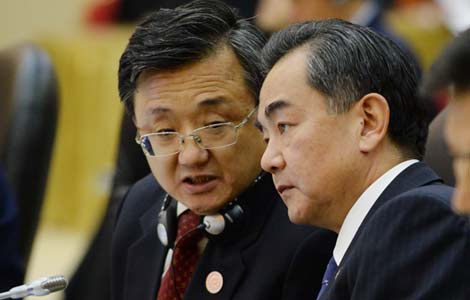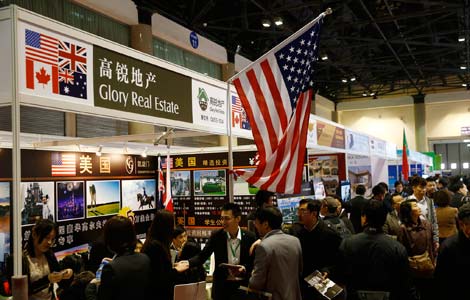Longer term for visas to attract talent
Updated: 2013-07-01 01:04
By ZHAO YINAN (China Daily)
|
||||||||
More than 30 countries have introduced policies for enhancing travel convenience and making visa processing easier for talent as of 2005, according to the United Nations. That includes 17 developed countries, such as the United States, and 13 emerging and developing countries.
Liu Guofu, an immigration law specialist at the Beijing Institute of Technology, said while the draft aims to attract global talent, it is still not specific enough.
He said a guidance catalogue for foreigners working in China is also being drafted, which will include specific industries that most need foreign experts and which will be updated from time to time.
Liu also said he does not think introducing a talent visa will be enough for China to keep global talent, since foreigners are still subject to excessive red tape and institutional barriers when they renew a visa, buy real estate, or apply for a domestic driving license.
"Many foreigners don't have the time and linguistic advantage to understand the complicated stipulations, which are scattered in different laws and regulations," he said.
The government should help foreigners understand related stipulations to avoid misunderstanding, he said.
Jenny Lee, a Singaporean who has retired to Shenzhen, Guangdong province, with her husband, whose ancestral home is in the area, said she felt she had been shortchanged by China's property policy.
She recently paid a large sum in cash to a real estate agent to purchase a secondhand apartment. Yet when the couple arrived at the property developer's office to finalize the contract days later, having already renovated and furnished the apartment, Lee said she was told by a staff member she is not qualified to own a home.
As citizens of Singapore, Lee and her husband are allowed to stay on the Chinese mainland for up to 15 days without a visa. To remain long-term, they simply visit Hong Kong and re-enter the mainland every two weeks.
However, according to a regulation on the entrance and management of foreign capital in the Chinese real estate market, foreigners are allowed to purchase a home only if they have worked or studied in China for at least a year.
"We were shocked and are very sad. We only wanted to have a comfortable home to stay in until we die," said Lee, who is in her early 60s. "Why didn't they tell us (about the restriction) before we bought the place?"
She said she cannot read Chinese, which has made it even more difficult to figure out the policy of the Chinese government.
Lee and her husband are waiting to get back the money they paid to the original owner.
Wang Shude, a property lawyer in Beijing, said foreigners in China face challenges with many important matters, such as purchasing a house or car, or seeing a doctor.
"These things may not be as politically important as the visa issue, but they are very important to foreigners who live in China," he said.
"The government should provide the same convenience as they do on the visa issue."

 Gay pride parade around the world
Gay pride parade around the world
 Four dead in Egypt clashes, scores wounded
Four dead in Egypt clashes, scores wounded
 New NSA spying allegations rile European allies
New NSA spying allegations rile European allies
 Foreign minister makes ASEAN debut as tensions flare
Foreign minister makes ASEAN debut as tensions flare
 Yao stresses transparency in charity
Yao stresses transparency in charity
 NYC's gay pride march for celebration
NYC's gay pride march for celebration
 Massive debt plagues local gov't
Massive debt plagues local gov't
 Looking abroad for better investment
Looking abroad for better investment
Most Viewed
Editor's Picks

|

|

|

|

|

|
Today's Top News
Chinese, US deals will grow this year
US updates duties on Chinese honey
Looking abroad for better investment
Mixed outlook for EV makers in China and US
Obama to announce new power initiative for Africa
China's June manufacturing PMI falls to 50.1
Putin signs anti-gay measures into law
Mandela remains critical as family feuds
US Weekly

|

|






